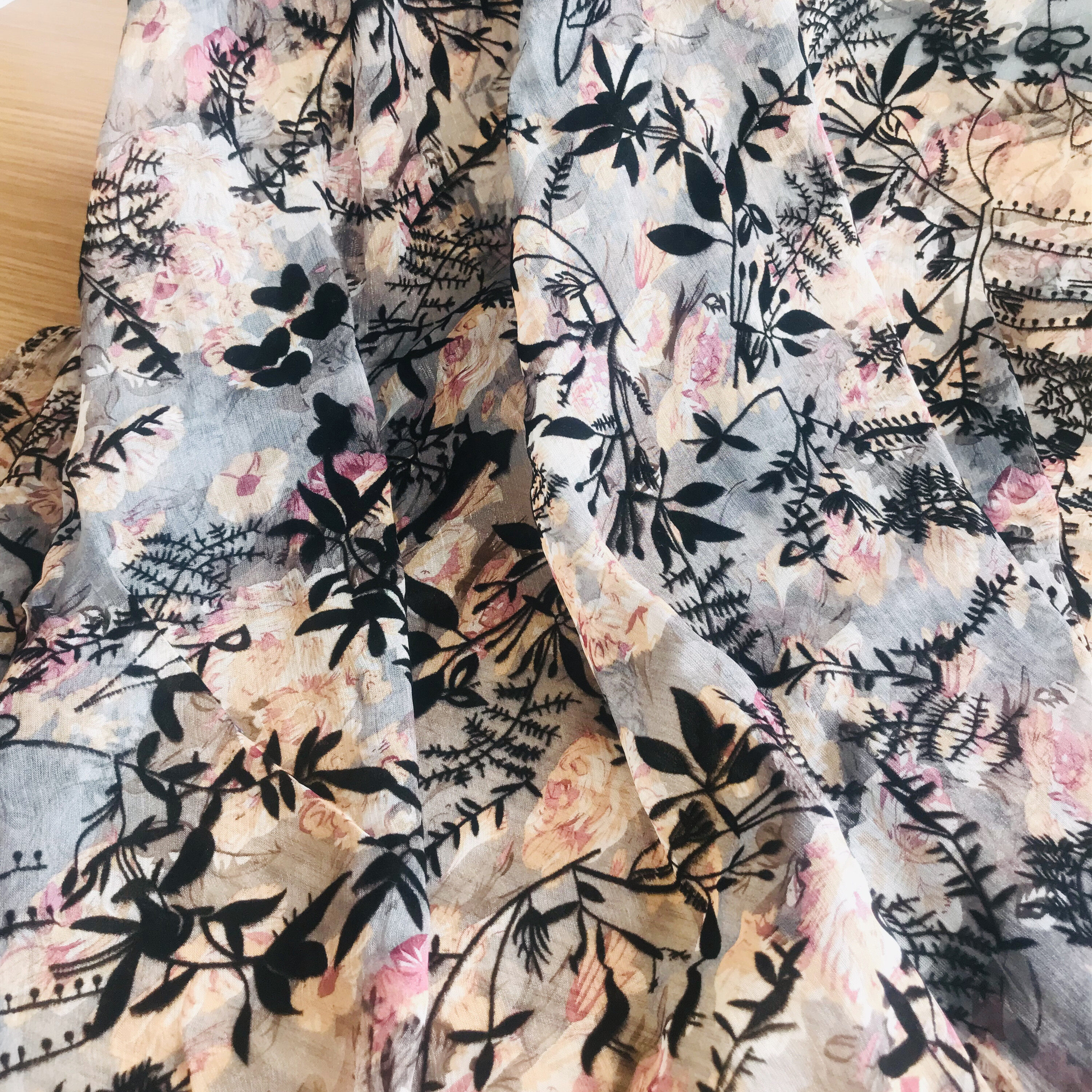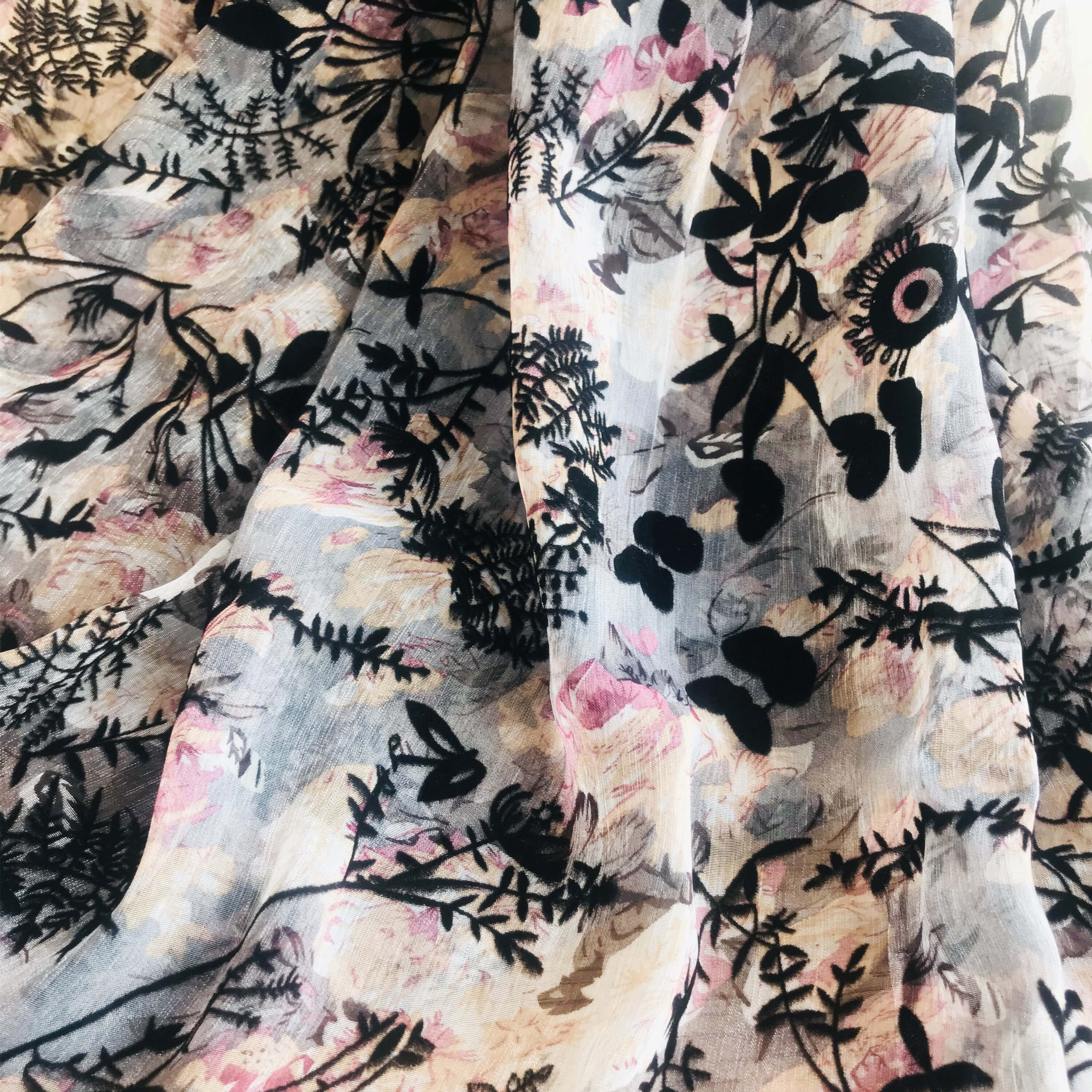

Polyester chiffon fabric is a lightweight and sheer fabric made from polyester fibers. It is known for its delicate appearance and flowing drape, making it a popular choice in the fashion industry. This post explores the manufacturing process, properties, applications, advantages, and disadvantages of polyester chiffon fabric, as well as its environmental impact and sustainability efforts. By understanding these aspects, we can appreciate the beauty of polyester chiffon fabric and make informed choices when incorporating it into our lives.
What is Polyester Chiffon Fabric?
Polyester chiffon fabric is a lightweight, sheer fabric made from polyester fibers. It is known for its delicate appearance and flowing drape. Polyester chiffon fabric is widely used in the fashion industry for its versatility and affordability.
The Manufacturing Process of Polyester Chiffon Fabric
Raw Material Selection:
The production of polyester chiffon fabric in a polyester chiffon fabric factory begins with the careful selection of high-quality polyester fibers. These fibers, chosen for their strength, durability, and ability to be spun into fine threads, form the foundation of the fabric.
Spinning and Weaving:
Once the raw materials are selected, they are taken to the spinning section of the polyester chiffon fabric factory. Here, the polyester fibers are spun into fine threads using specialized machines. These threads are then woven together on looms to create the base fabric of polyester chiffon.
Dyeing and Printing:
After the weaving process, the fabric is ready for dyeing and printing. In the dyeing section of the polyester chiffon fabric factory, various colors are applied to the fabric to achieve the desired shades. Additionally, printing techniques such as screen printing or digital printing can be used to create intricate patterns and designs on the fabric.
Finishing and Quality Control:
The final steps in the manufacturing process take place in the finishing section of the polyester chiffon fabric factory. Here, the fabric undergoes treatments such as heat setting, softening, and anti-static treatments to enhance its properties. Quality control measures are implemented to ensure that the fabric meets the desired standards before it is ready for distribution.
Properties of Polyester Chiffon Fabric
Lightweight and Sheer:
One of the key characteristics of polyester chiffon fabric is its lightweight nature. This makes it ideal for creating flowing garments that have an ethereal quality.
Soft and Flowing:
The softness and flowing drape of polyester chiffon fabric add a touch of elegance to any garment. It is comfortable to wear and visually appealing, making it a popular choice in the fashion industry.
Wrinkle Resistance:
Polyester chiffon fabric is known for its wrinkle resistance. This makes it a practical choice for travel or occasions where maintaining a polished appearance is essential.
Durability and Strength:
Despite its delicate appearance, polyester chiffon fabric is surprisingly durable and strong. It can withstand regular wear and tear, making it a long-lasting fabric choice.
Applications of Polyester Chiffon Fabric
Fashion Industry:
Polyester chiffon fabric is widely used in the fashion industry for creating dresses, blouses, skirts, and scarves. Its lightweight and sheer properties make it a popular choice for creating feminine and romantic designs.
Home Decor:
Polyester chiffon fabric can also be used in home decor applications such as curtains, drapes, and decorative accents. Its soft and flowing nature adds a touch of elegance to any living space.
Bridal Wear:
Bridal gowns and bridesmaid dresses often feature polyester chiffon fabric. Its delicate appearance and flowing drape create a romantic and ethereal look, making it a popular choice for weddings.
Scarves and Accessories:
Polyester chiffon fabric is frequently used to create scarves, shawls, and other accessories. Its lightweight nature makes it comfortable to wear, while its sheer quality adds a touch of sophistication.
Advantages and Disadvantages of Polyester Chiffon Fabric
Advantages:
Polyester chiffon fabric, manufactured in a polyester chiffon fabric factory, offers several advantages. It is more affordable compared to natural silk chiffon, making it accessible to a wider range of consumers. Its versatility allows for a wide range of colors and intricate designs. Additionally, it is easy to care for and requires minimal ironing. Its durability ensures that garments made from polyester chiffon fabric can withstand regular use.
Disadvantages:
While polyester chiffon fabric has its advantages, there are also some disadvantages to consider. It is less breathable compared to natural fibers, which can make it less comfortable in hot weather. Polyester chiffon fabric can generate static electricity, causing garments to cling to the body. Additionally, as a synthetic fiber derived from petrochemicals, there are concerns about its environmental impact.
Sustainability and Polyester Chiffon Fabric
Environmental Impact:
The production of polyester chiffon fabric in a polyester chiffon fabric factory involves the use of petrochemicals, which are non-renewable resources. Additionally, the dyeing and finishing processes can release harmful chemicals into the environment if not properly managed.
Recycling and Upcycling:
To mitigate the environmental impact, efforts are being made to recycle and upcycle polyester chiffon fabric. Recycling programs aim to convert used polyester fabrics into new fibers, reducing the need for virgin materials. Upcycling initiatives encourage the repurposing of polyester chiffon fabric into new products, extending its lifespan and reducing waste.
Conclusion:
Polyester chiffon fabric, produced in a polyester chiffon fabric factory, is a versatile and affordable fabric choice that has found its place in the fashion industry and beyond. Its lightweight, sheer, and flowing nature makes it a popular choice for creating feminine and elegant designs. While it has its advantages and disadvantages, efforts are being made to address the environmental concerns associated with its production. As consumers, we can make conscious choices to support sustainable practices and explore alternatives to minimize the impact of polyester chiffon fabric on the environment. By understanding the manufacturing process and properties of polyester chiffon fabric, we can appreciate its beauty and make informed decisions when incorporating it into our wardrobes and homes.
Email format error
Email cannot be empty
Email already exists
6-20 characters(letters plus numbers only)
The password is inconsistent
Email format error
Email cannot be empty
Email does not exist
6-20 characters(letters plus numbers only)
The password is inconsistent